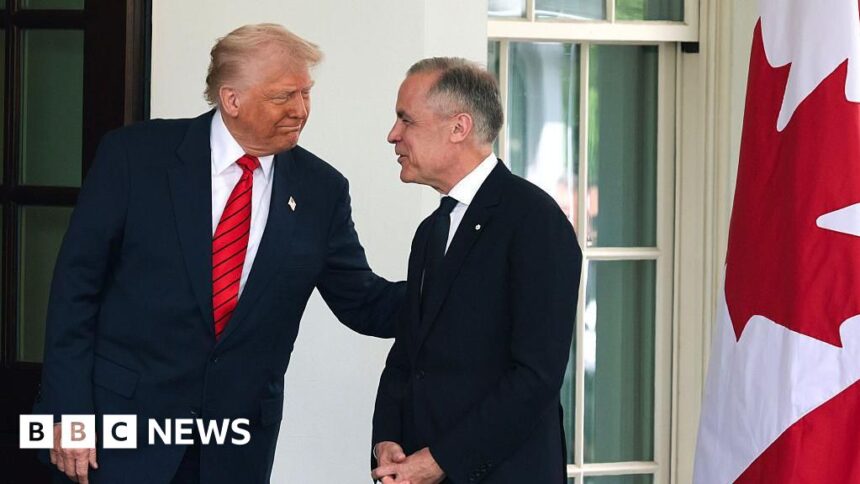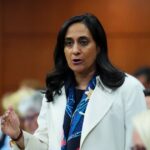The urgent gathering of G7 foreign ministers in Italy this week underscores growing international alarm over the Middle East’s precarious state. In Fiuggi, just outside Rome, diplomats face their most significant challenge yet: preventing all-out war between Israel and Iran while the region teeters on collapse.
“We are working around the clock to prevent further escalation,” Italian Foreign Minister Antonio Tajani told me as ministers arrived at the historic spa town. “The situation demands immediate diplomatic intervention.”
This summit follows Iran’s unprecedented April 13 drone and missile attack against Israel – the first direct assault from Iranian territory – and Israel’s subsequent promise of retaliation. The attack, involving over 300 projectiles, represented a dramatic escalation even by recent standards.
What makes this G7 meeting particularly consequential is its timing. Several diplomatic sources confirmed they’re developing a coordinated response to contain regional hostilities before they spiral beyond control. The ministers, representing the United States, Canada, France, Germany, Italy, Japan, and the United Kingdom, face daunting circumstances.
U.S. Secretary of State Antony Blinken arrived after visits to Israel and Jordan, where he urged restraint from Israeli officials. “We support Israel’s right to defend itself, but how it does so matters,” Blinken stated during our brief exchange. His shuttle diplomacy highlights Washington’s delicate balancing act – supporting a key ally while trying to prevent region-wide conflict.
The summit’s backdrop features seven months of war in Gaza following Hamas’ October 7 attack, with the humanitarian situation deteriorating by the day. UN agencies report over 33,000 Palestinians killed and more than 75,000 wounded. Meanwhile, approximately 1.7 million people – nearly 80% of Gaza’s population – have been displaced, according to the UN Relief and Works Agency.
“We’re witnessing catastrophic humanitarian failure,” said Marc Giacomini, EU humanitarian coordinator, in a phone call yesterday. “Aid deliveries remain woefully insufficient despite repeated international demands.”
Several European diplomats, speaking on condition of anonymity, expressed frustration with Israel’s military campaign while acknowledging the complexity of supporting a ceasefire that Hamas might reject. This tension was evident during ministers’ closed-door sessions.
German Foreign Minister Annalena Baerbock has been particularly vocal about the need for increased humanitarian access to Gaza. “We cannot allow an entire population to suffer collectively,” she stated before entering talks. Germany, historically one of Israel’s strongest European allies, has increasingly criticized Netanyahu’s government while maintaining its commitment to Israeli security.
The summit also addressed Lebanon, where daily exchanges of fire between Israel and Hezbollah threaten to trigger another full-scale conflict. Since October, over 100,000 people have been displaced from communities on both sides of the Israel-Lebanon border.
“The situation in southern Lebanon is a tinderbox,” a senior French diplomat told me. “One miscalculation could ignite the entire frontier.”
Beyond immediate crisis management, the G7 ministers discussed long-term regional stability. Italian proposals include strengthening the UN peacekeeping mission in Lebanon (UNIFIL) and revitalizing diplomatic channels with Iran despite current tensions.
Economic pressure remains a key tool in the diplomatic arsenal. The United States announced additional sanctions against Iranian individuals and entities involved in drone production, while European partners consider similar measures. However, economic leverages face limitations given Iran’s years of adaptation to international sanctions.
The ministers also examined Tehran’s nuclear program, which continues advancing despite international monitoring attempts. According to International Atomic Energy Agency reports, Iran has enriched uranium to 60% purity – a short technical step from weapons-grade material.
“We’re witnessing multiple crises converging simultaneously,” said Japanese Foreign Minister Yoko Kamikawa, emphasizing the threat of regional instability to global energy markets and maritime security.
Behind closed doors, divisions emerged over appropriate responses to Israel’s anticipated retaliation against Iran. Some European ministers advocated for preemptive sanctions should Israel strike Iranian civilian infrastructure, while others emphasized Israel’s right to self-defense. These differences highlight broader transatlantic tensions over Middle East policy.
The summit coincided with intensifying efforts to secure a ceasefire and hostage release deal for Gaza. U.S., Egyptian, and Qatari mediators have proposed a three-phase plan that would eventually end hostilities while returning Israeli hostages and Palestinian prisoners. Hamas recently responded with modifications that Israeli officials rejected as “unrealistic.”
“The hostage families cannot wait any longer,” said Eli Oran, whose cousin remains captive in Gaza. I spoke with him by phone from Tel Aviv yesterday. “Each day that passes diminishes the chances of seeing our loved ones alive.”
As ministers concluded their sessions, they issued carefully worded statements calling for “proportionate responses” and “restraint from all parties.” Whether these diplomatic efforts will translate into concrete de-escalation remains uncertain.
What’s clear is that the Middle East stands at a dangerous crossroads. The decisions made in the coming days – by leaders in Jerusalem, Tehran, Washington, and European capitals – will determine whether the region descends into wider conflict or finds a path toward fragile stability.
For those living in the region, these diplomatic maneuvers represent much more than political calculations. They determine whether millions more will be displaced, whether infrastructure will be destroyed, and ultimately, whether lives will be lost or saved.






